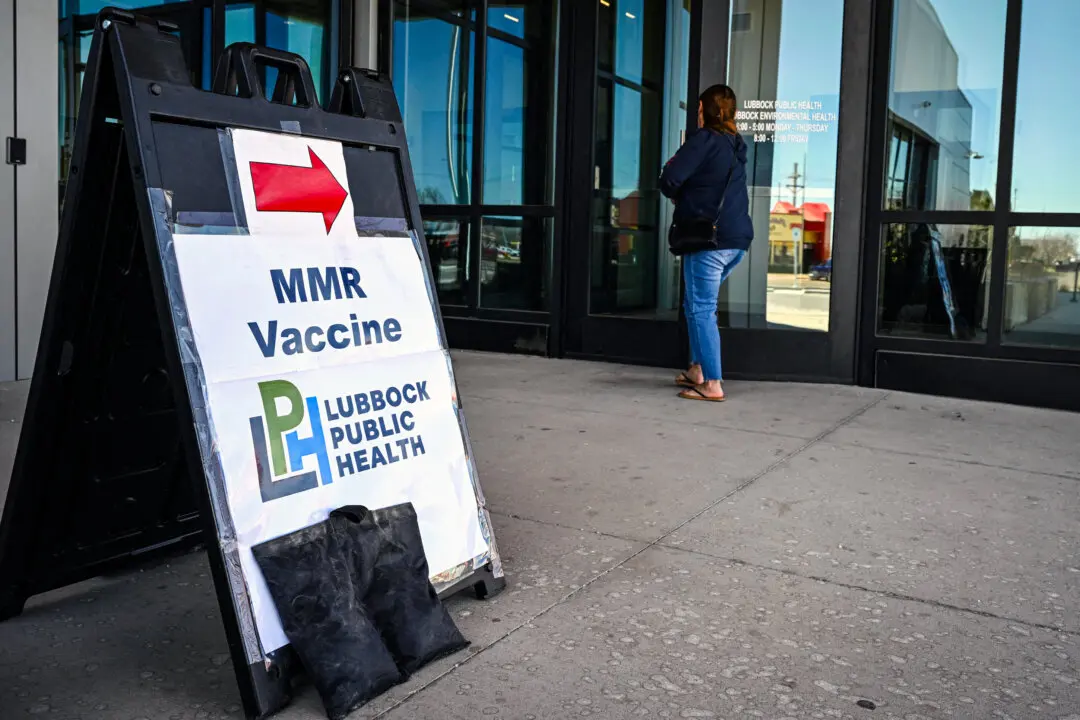The Air Force has rejected a medical exemption application to the military’s COVID-19 vaccine mandate from a reservist who presented proof that she has an allergy to one of the vaccine’s components.
The reservist, who went to a clinic in Texas, underwent allergy testing to components of the vaccine, according to a letter from a doctor that was submitted to the Air Force this week.





